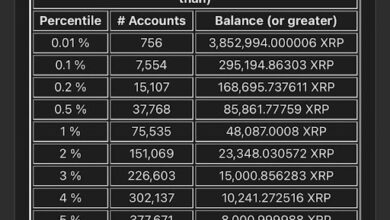
Ethereum’s co-founder, Vitalik Buterin, has recently weighed in on the debate surrounding war-related markets on prediction betting platforms. As a prominent figure in the crypto community, Buterin’s insights have sparked widespread discussion and reflection.
Vitalik Buterin Backs Hezbollah Betting Section
On Monday, the crypto community found itself in the midst of a heated discussion about the existence of war-related betting markets. This conversation was ignited by a user on X, formerly known as Twitter, who raised concerns about the ethical implications of such markets. The user, named Legendary, expressed discomfort with the idea of having a dedicated section for Hezbollah, likening it to trivializing war into a mere sport for betting enthusiasts.
While a significant number of community members echoed these concerns, there was a substantial counterargument presented by others. These defenders argued that prediction markets on geopolitical issues should not be seen as trivializing serious events. Instead, they could serve as valuable tools for information dissemination.
Vitalik Buterin was among those who supported the existence of the Hezbollah betting section. He emphasized that while traders might view these markets as a betting opportunity, for the average viewer, they could serve as a decentralized information tool. Buterin highlighted the importance of having platforms where people can see the actual probabilities assigned to certain events, thus providing a counterbalance to potentially harmful and inaccurate predictions disseminated by elites on the internet.
“There are all kinds of people, including elites, on Twitter and the internet making harmful and inaccurate predictions about conflicts. Being able to see if people with actual skin in the game think something has a 2% chance or a 50% chance is a valuable feature that can help keep people sane,” said Buterin.
Buterin further clarified that these markets are not about profiting from unfortunate events. Instead, they create an environment where speech has consequences, thereby punishing both unjustified fearmongering and complacency without relying on governmental or corporate censorship.
Many in the community shared Buterin’s perspective, arguing that decentralized prediction markets offer value to those who mistrust mainstream media or live in controlled states. By providing “true” odds on various events, these markets can offer a more accurate picture of reality.
Can Prediction Markets Influence Real-Life Events?
The discussion took another turn when Chainlink expert Zach Rynes questioned Buterin’s stance. Rynes pondered whether there should be boundaries on what individuals can bet on, as there could be risks of people taking actions to influence outcomes.
In response, Buterin, along with most prediction market advocates, expressed opposition to extreme scenarios, such as assassination prediction markets. He acknowledged that introducing moral considerations into these markets could be challenging, as many companies that people invest in or purchase from are involved in subsidizing geopolitical conflicts.
Buterin also questioned the extent to which these markets could influence real-life events. He suggested that we are far from a point where the existence of these markets could serve as a primary incentive for individuals to engage in nefarious activities just to insider-trade on them.
It’s important to note that Buterin’s support for Polymarket isn’t a recent development. He has previously defended the decentralized prediction market when it faced regulatory scrutiny from the US Commodities Futures Trading Commission (CFTC).
“Putting Polymarket into the category of ‘gambling’ is a massive misunderstanding of what prediction markets are or why people, including economists and policy intellectuals, are excited about them,” Buterin asserted.
Buterin’s involvement with Polymarket extends beyond rhetorical support. He participated in Polymarket’s Series B funding, which successfully raised $45 million in May, alongside Peter Thiel’s Founders Fund. Polymarket is currently looking to secure an additional $50 million in a new funding round and is reportedly considering launching its own token to enable user voting on the platform.
Ethereum (ETH) is currently trading at $2,632, according to data from TradingView.







